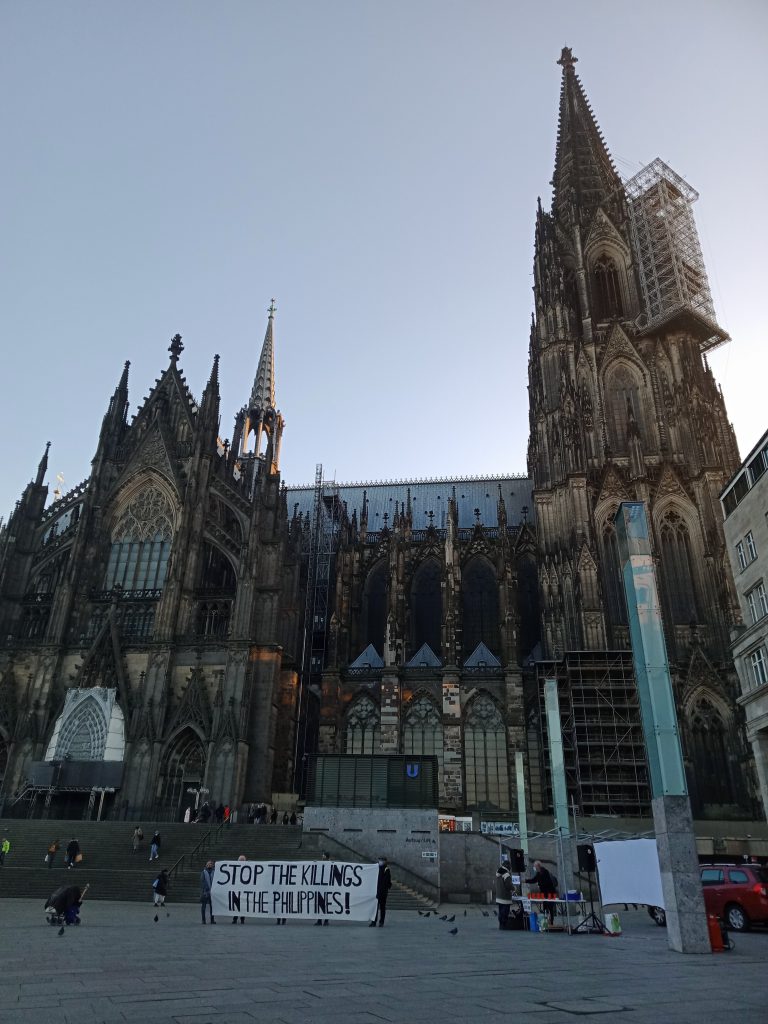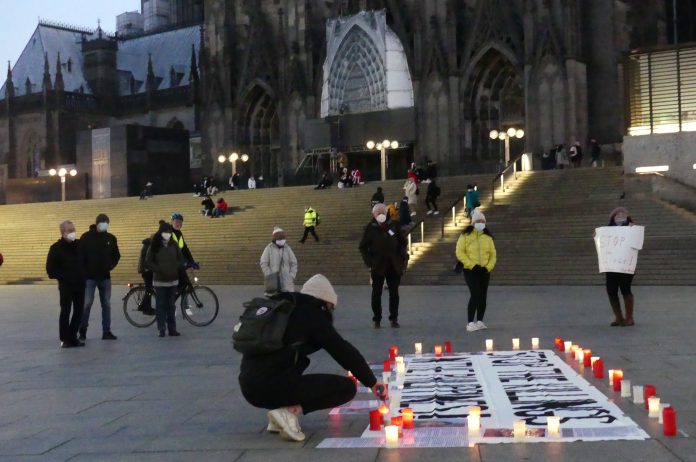A group of Filipinos and their German friends marked International Human Rights Day with a demonstration in front of the world-famous gothic cathedral in the city of Cologne.
The demonstrators denounced what they described as the “systematic human rights abuses” in the Philippines under the administration of President Rodrigo Duterte.
“We are very much concerned about what is happening over there,” said Bernhard, 64, who has worked in the Philippines as development expert for about ten years.
“Unlike our friends and relatives in the Philippines, we can afford to express ourselves freely, without being afraid of becoming victims of state-incited and state-sponsored repression or worse,” he said.
The more than 50 protesters cited the extrajudicial killings of political activists, lawyers, journalists, environmentalists, drug users and those suspected of involvement in the drug trade in the country.
They also condemned what they noted as the attack in the Philippines on “independent and critical media organizations” through threats, lawsuits and shutdown.
The group warned against the implications of the passage of the Anti-Terrorism Act of 2020, which they said can worsen the human rights situation in the country.
Some of the protesters said they personally knew Zara Alvarez, 39, a church worker and paralegal in the province of Negros who was killed by still unidentified assailants in Bacolod City on August 17.
Alvarez had been to Germany in 2019 and had shared her view on the situation in the Philippines, particularly in the island of Negros, during several public events.
“When I learned of Zara’s murder, my first reaction was denial”, said Kathrin, 26, one of the activists who asked not to reveal her full name.
“I could not accept the terrible truth that this kind and caring woman who had devoted her whole life to working for poor and oppressed people had been mercilessly ambushed and killed,” she said.

Many of those who joined the Cologne gathering have strong links to the Philippines and have been to the country as journalists, volunteers, development workers, expats, and professionals.
They said, however, that any new appeal to the Philippine government to immediately stop the human rights abuses will only prove futile.
The protesters said they would rather pin their hopes on more effective responses, like the one launched by the German government and the European Union.
On December 7, the EU Council adopted a mechanism “that will allow it to target individuals, entities and bodies – including state and non-state actors – responsible for, involved in or associated with serious human rights violations and abuses worldwide, no matter where they occurred.”
Crimes against humanity and other serious human rights violations or abuses, like torture,
extrajudicial killings, arbitrary arrests or detentions, are part of a framework for restrictive measures, such as a travel ban applying to individuals, and the freezing of funds applying to both individuals and entities.
“It is high time for a strong signal to the Philippine government officials who are responsible for waging war on their own people,” said Bernhard, who is also a board member of Philippinenbüro, a Cologne-based German information and documentation center on the Philippines.
Parallel to the Cologne human rights event, members of the Philippine Diaspora in Berlin organized a vigil and those in Hamburg held an online memorial service to remember victims of human rights abuses.









